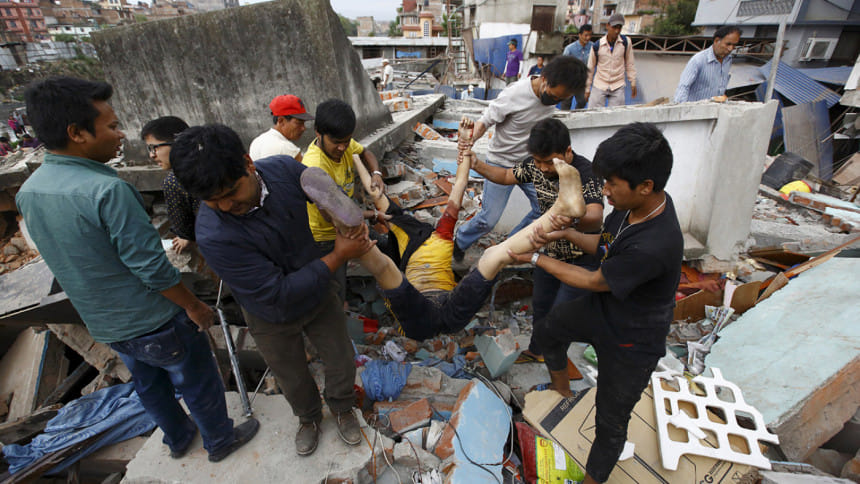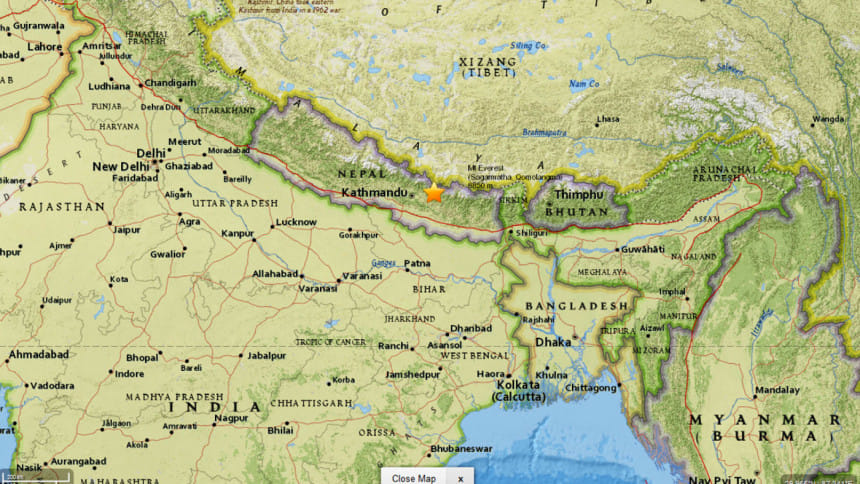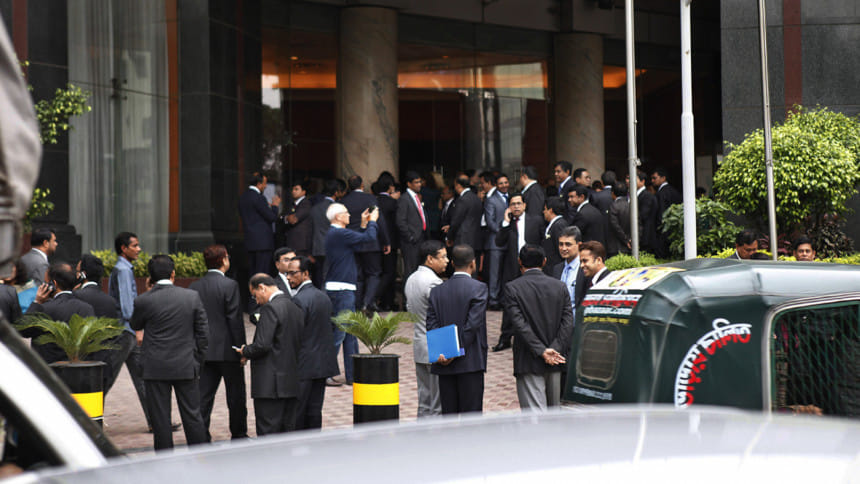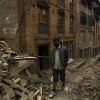Nepal quake may trigger major tremors in Bangladesh

There were very insignificant damages to buildings here in Bangladesh in the last two days' earthquakes. But should that give us any relief to think that even a 7.8 magnitude tremor would not affect us much? Not at all, earthquake experts say.
Bangladesh was saved this time because the epicentre was about 700 to 750 kilometres away in Nepal.
"So even if the magnitude of the earthquake was 7.8 on the Richter scale, its intensity in Bangladesh was very low, about 4 to 5 on the intensity scale – Modified Mercalli Intensity Scale," said Dr Mehedi Ahmed Ansary of civil engineering department of Bangladesh University of Engineering and Technology. "This is why we saw little damage. In Nepal where the epicentre was, the intensity was 9-10. Damage depends on the intensity scale."
However, Ansary warns the Nepal earthquake may trigger major tremors in Bangladesh as the earth plates are interconnected.

Magnitude of the quake as described popularly on Richter scale shows how much energy is released at the epicentre. To understand this one can say the Hiroshima atom bomb had released energy equivalent to a 5 magnitude earthquake.
Every point increase in the scale means 32 times more energy released. So a 6 Richter scale tremor is 32 times deadlier than a 5 Richter scale quake in energy eruption.
On the other hand, intensity is determined from effects on people, human structures, and the natural environment as defined by the United States Geological Survey.
And what if Bangladesh faces a 7-8 intensity earthquake? And how can that happen?
The World Bank and the UNDP had done two studies on earthquake impacts in Bangladesh in 2010 and 2012 and Dr Ansary was one of the members of the study team.
"Bangladesh has five known fault lines and one of them is in Modhupur, some 70 kilometres off Dhaka," Ansary says. "If we have a 7 Richter scale tremor there, 30 percent of Dhaka buildings may suffer moderate to heavy damage."
The reports estimate about 2-3 lakh people will either die or get injured and an economic loss of $10 billion.

A fault line is a fissure in the earth plate that generates earthquakes. As the plates move along this fault lines, energy is generated and when released causes the tremors.
The other four fault lines in Bangladesh are Cox's Bazar – Feni plate boundary 1, Feni-Sri Mongol plate boundary 2, Sri Mongol – India plate boundary 4 and Dawki fault line.
All these fault lines have been generating energy as the tectonic plate is slowly moving. Modhupur fault line generated a 7.1 magnitude quake in 1885. Dawki produced an 8 magnitude tremor in 1897 and more recently Feni-Sri Mongol plate boundary 2 produced one of 7.6 magnitude in 1981.

 For all latest news, follow The Daily Star's Google News channel.
For all latest news, follow The Daily Star's Google News channel. 






Comments